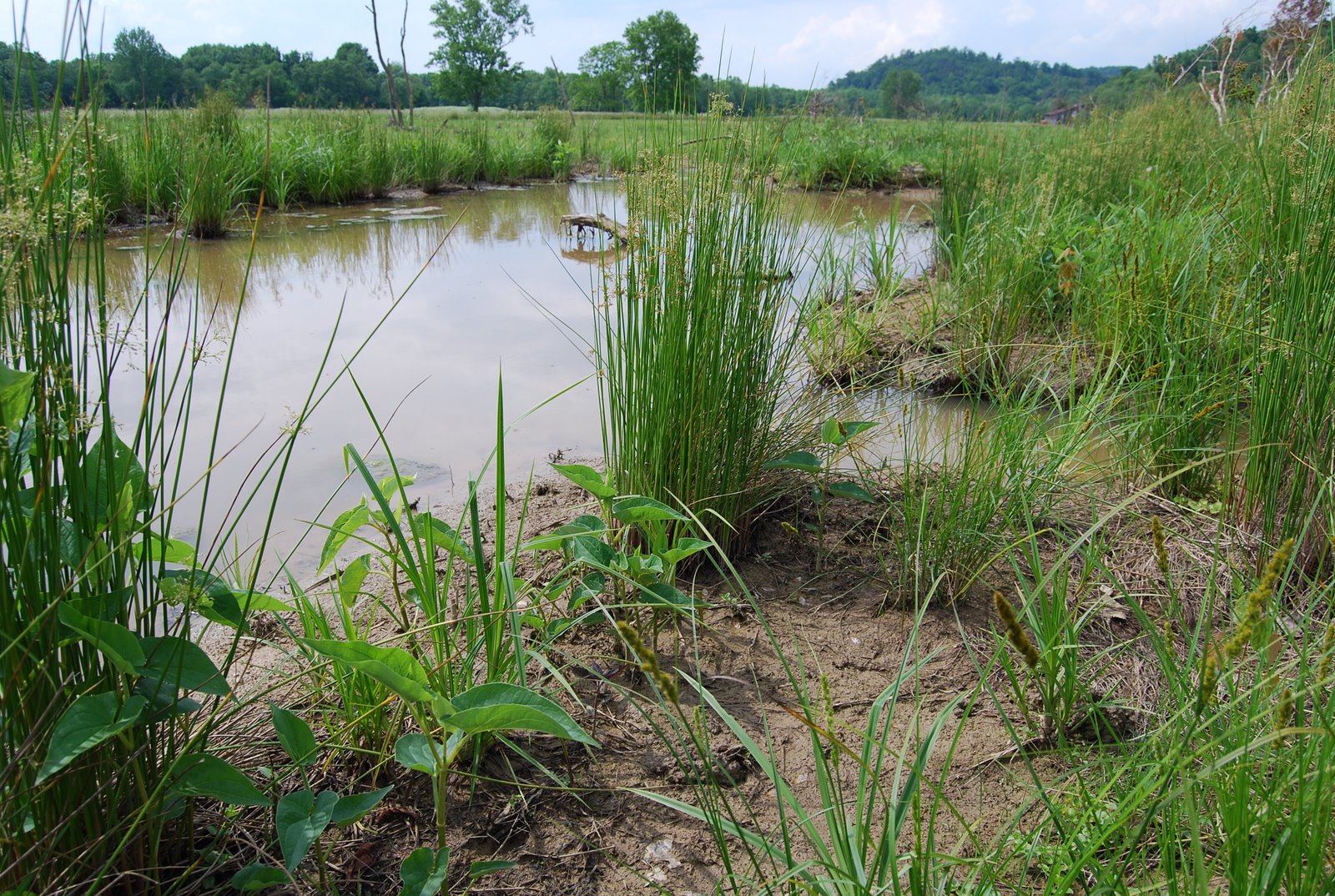Difference between revisions of "Wetlands"
| Line 4: | Line 4: | ||
However, wetlands are disappearing more and more. For instance, about 50% of South Africa’s wetlands have already been destroyed or converted through draining, the building of dams, incorrect burning and overgrazing, invasive alien species, waste disposal, water abstraction, agricultural, urban development and inappropriate land management. These losses are expected to increase as the human population grows and demand for water resources and land expands. | However, wetlands are disappearing more and more. For instance, about 50% of South Africa’s wetlands have already been destroyed or converted through draining, the building of dams, incorrect burning and overgrazing, invasive alien species, waste disposal, water abstraction, agricultural, urban development and inappropriate land management. These losses are expected to increase as the human population grows and demand for water resources and land expands. | ||
| + | |||
| + | Rural communities obtain direct benefits from wetlands when they harvest reeds for crafts, grow crops in wetland fields and extract water for drinking. They also obtain medicinal plants from wetlands, and at least 70% of South Africans are believed to use traditional medicine as their primary form of health care. Wetlands are also important carbon sinks, playing a key role in mitigating climate change. | ||
==Reference manuals, videos, and link== | ==Reference manuals, videos, and link== | ||
| Line 9: | Line 11: | ||
==Acknowledgements== | ==Acknowledgements== | ||
| − | [http://www.iwmi.cgiar.org/Publications/IWMI_Research_Reports/PDF/PUB137/RR137.aspx Wetlands, Agriculture and Poverty Reduction.] IWMI, 2010. | + | * [http://www.iwmi.cgiar.org/Publications/IWMI_Research_Reports/PDF/PUB137/RR137.aspx Wetlands, Agriculture and Poverty Reduction.] IWMI, 2010. |
| + | * [http://www.moyawatenga.co.za/why-wetlands-matter-a-media-release-from-the-ewt/ Why Wetlands Matter | A media Release from The EWT.] | ||
Revision as of 00:24, 26 May 2012

Wetlands can be considered as sinks into which surface water or groundwater flows from a surrounding catchment. Within landscapes they are “natural harvesters” of rainwater and, by definition, sites where water occurs at or close to the ground surface.
However, wetlands are disappearing more and more. For instance, about 50% of South Africa’s wetlands have already been destroyed or converted through draining, the building of dams, incorrect burning and overgrazing, invasive alien species, waste disposal, water abstraction, agricultural, urban development and inappropriate land management. These losses are expected to increase as the human population grows and demand for water resources and land expands.
Rural communities obtain direct benefits from wetlands when they harvest reeds for crafts, grow crops in wetland fields and extract water for drinking. They also obtain medicinal plants from wetlands, and at least 70% of South Africans are believed to use traditional medicine as their primary form of health care. Wetlands are also important carbon sinks, playing a key role in mitigating climate change.
Reference manuals, videos, and link
- Drought in eastern Africa worsened by wetland loss. Wetlands International, 2009.
